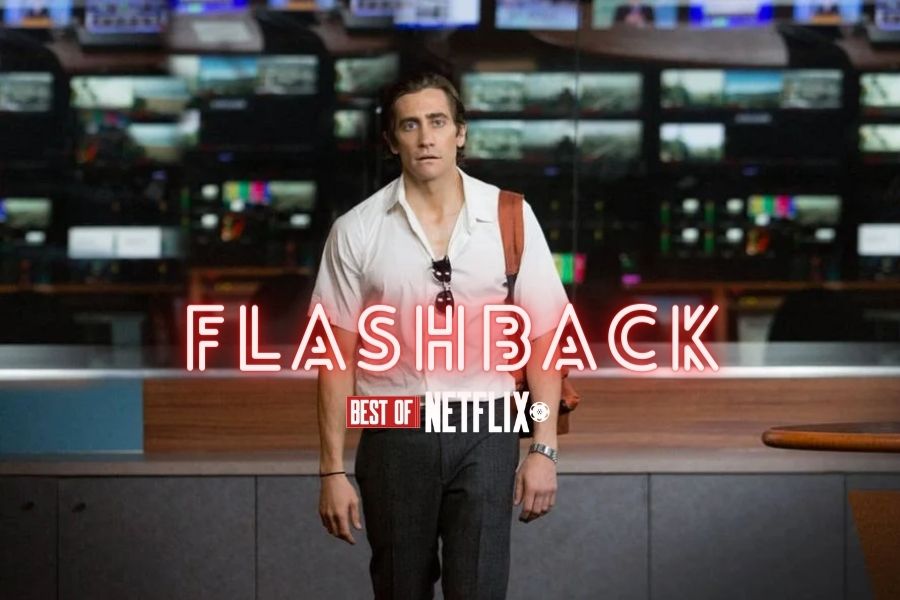Every week, we bring you a classic film that deserves your unbridled attention once more. As part of Netflix Flashback, we blow away the cobwebs and pick out an oft-forgotten piece of cinematic brilliance, this week we’re picking out arguably Jake Gyllenhaal’s greatest performance; Nightcrawler.
The crisis of fake and manipulated news is a subject that could not be more pertinent in contemporary media where the likes of Donald Trump and other powerful leaders have benefited from the misinformation of the modern world. Such is a concept that has been explored throughout the history of cinema, even before the 21st century when sagacious filmmakers well predicted the grief of modern-day media.
Network from Sidney Lumet is certainly the most prominent of these films, with the iconic American Oscar-winner predicting the dismay and injustice of contemporary media just as the tide was turning to such a direction in the late 1970s. This was followed by spiritual sequels, To Die For from Gus Van Sant in the ‘90s and the tragic true story of Christine Chubbuck immortalised in the film Christine released in 2016.
Sandwiched in between these releases was Dan Gilroy’s 2014 dramatic thriller, Nightcrawler starring Jake Gyllenhaal as a wiry stringer dashing to crime scenes as fast as he can to capture a grisly exclusive image. Embodying the lead role of Louis Bloom almost a little too well, Gyllenhaal represents a dark metaphorical spectre of modern-day media, appearing on the crime scene quicker than the police as a gaunt capitalist grim reaper.
Conceiving the idea for the film way back in 1988, after reading the photography book Naked City, a collection of images captured by the American photographer Weegee in the twilight of 1940s New York, Gilroy wrote a screenplay inspired by the artist. Following the release of The Public Eye based on the photographer’s life, Gilroy shelved the plan though remained fascinated by the power of provocative photography to draw a crowd.
“I suddenly became aware of and intrigued by the idea that it must be a powerful force for a TV station, when they realize their ratings go through the roof when they show something with the potential for violence,” Gilroy told Grantland in 2014, with the director setting out his own film about the subject inspired by The King of Comedy from Martin Scorsese among other films. From this, the antihero Louis Bloom was born, a detestable character who leeches off the tragedy of real-life suffering to create his own monetary success.
Yet, despite this, Gyllenhaal makes Bloom a strangely likeable character in his pure dedication to his craft and his peculiar moral stability that suggested he was not the problem, rather it was the readers that demanded such content. Preparing for the role by losing almost 30 pounds and eating nothing but kale and chewing gum, Gyllenhaal transforms into a skeletal scavenger in Gilroy’s modern classic. Fueled by his incessant hunger for another shot of violent crime, Bloom is an antihero representative of the desperation of national employment and the desires of 21st-century capitalism.
“This character was beautifully written. The dialogue is pretty extraordinary. Just even the style of the script was an amazing read”, Gyllenhaal told Deadline at the time of the film’s release, praising Gilroy for his long-matured script dismantling the practices of modern media. For such a scrounger of a character, there is no better actor both physically and psychologically to depict Louis Bloom, a manipulative worm winding his way into the already infested venomous underworld of popular news networks.
Watch Nightcrawler
